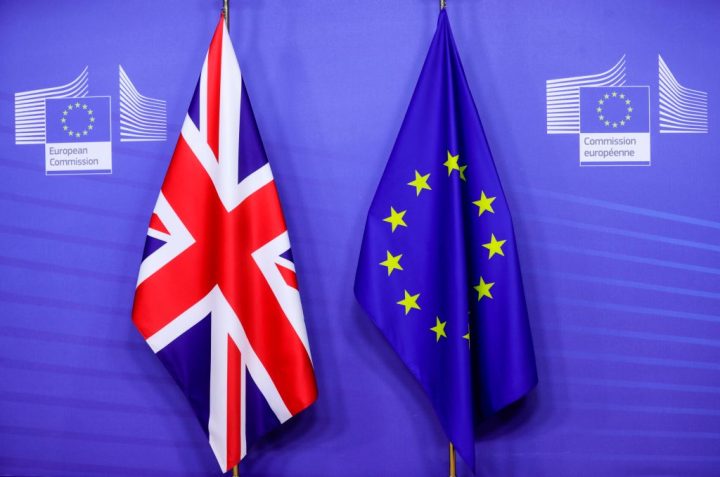If anyone thought our relations with the EU since the Brexit referendum would be a respectful dialogue of equals, they were quickly disabused. Relations remain, to use an understatement, strained. Three national opposition parties have all chosen to weaponise this unpleasantness, and call for re-engagement with at least some EU institutions. Before you follow them and cast an anti-Sunak vote two weeks on Thursday, you could do worse than read their manifestos.
If you like the look of the Greens’ ‘real hope, real change’ motto, do note that they openly want the UK back in the EU as soon as possible. Meanwhile they would sign up immediately again to the customs union and to free movement of people. Odd perhaps for a party generally opposed to competitive enterprise and supportive of fairly reckless state spending, not to mention advocating a ban on investment companies doing business in the UK which invest in any fossil fuels (illegal under EU law for EU companies): but let that pass. The Lib Dems are also long-term rejoiners, though for the moment they are paying pay lip service to Brexit. At present they content themselves with a call to go back into the single market, and also to re-enter the complex web of animal and plant health regulations that underpin EU trade in food.
Innocent-sounding proposals may mean more than you think
For his part, Keir Starmer has cannily ruled out the single market and freedom of movement – at least for now. But read the small print. He retains a commitment to ‘deepen ties with our European friends’, starting with signing up to the animal and plant health rules, and also some unspecified security co-operation.
We as electors need to watch any such plans for rapprochement like a hawk. We have to remember that even when it was clear that the UK was heading for the exit, this did not prevent Brussels making life difficult: think, for instance, its conditioning of police co-operation to ECHR membership, its intransigence on Northern Ireland, its insistence on a continued role for the European court in certain areas, and so on. How much more is it likely to do this if it encounters us as suppliants seeking to come in again?
We also have to remember that innocent-sounding proposals may mean more than you think. Take, for example, the single market favoured by the Greens and the Lib Dems, clearly aimed at providing reassurance to EU-sceptics. After all, what can there be not to like about an ability to stay out of the EU but still tap into a market of nearly half-a-billion eager consumers?
Actually the answer is quite a lot. Free trade is only a fairly small part of the single market: and a lot of its other features are precisely what caused us to leave in the first place. At a stroke we would see not only free movement of people roaring back but also all the myriad Euro-regulations about everything from social policy and anti-discrimination to product standards. Moreover, the latter would apply even to goods that weren’t intended to be traded to other EU members at all.
Even if we were in the single market but not the customs union, we would still face problems. For example, the enforcement of complex place of origin rules to ensure goods arriving here from third countries didn’t end up on the carefully protected EU market. Add to that the fact that having joined the single market we would have to promise in future to remain in lockstep with a great many subsequent changes in EU law over which we would have no say at all, and the attractions wane further and faster.
Oh, and one other thing: none of this would come free. We would also have to agree to make a contribution to EU coffers: not as much as when we were members, but still substantial, probably in the high hundreds of millions.
What about Labour’s wheeze? At least for the moment, it is just some EU-lite in the form of security co-operation and animal health rules? You should still be worried. What security cooperation would involve, and how it might affect Nato and our own interests, isn’t clear: in other words, here Keir comes bearing a pig in a poke.
With animal health rules, by contrast, there is no uncertainty: we know exactly what we would be getting. Unfortunately it is also distinctly unattractive. In practice it would once again tie up our agriculture and food chain in an all-enveloping net of EU animal health laws we spent such a time in escaping. And, of course, this time, we would, in the event of future changes, have no choice but to to jump when Brussels said ‘jump’, despite having had no say in the formation of those changes and whatever our own electors might think. From a party that in its own manifesto accuses the Conservatives of having shown a ‘contempt for democracy’, all this is a bit rich.
In short, what we’re being offered by the Greens, the Lib Dems and Labour isn’t so much a cordial relation with long-lost friends in Europe, as a trusting of our interests to a technocratic Euro-elite, neatly expressible as an embrace of the rhyme ‘always keep a-hold of Nurse, for fear of finding something worse’. There’s only one trouble. Hilaire Belloc in 1907 was writing that poem tongue-in-cheek. By contrast Keir Starmer and the left are in serious, deadly earnest. Now, are you still sure about that anti-Sunak gesture?







Comments